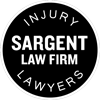California law imposes time limits for many types of legal claims. The time limits are called the statute of limitations. The plaintiff must formally file their case by the expiration of the deadline. Even if they have a great case, if they miss the deadline, their case will get dismissed.
But what happens if the plaintiff doesn’t know they have a case? What happens if they don’t find out until later that they are injured?
In California, the answer is the discovery rule. The discovery rule may pause or toll the statute of limitations if the victim doesn’t know that they have a claim right away.
It’s important to know when the discovery rule applies and what it means for accident victims. Our lawyers explain.
About The Statute of Limitations
What is the statute of limitations in a California accident claim?
The statute of limitations in a California accident claim is two years. The limitation is stated in the California Code of Civil Procedure § 335.1.
What is the purpose of the statute of limitations?
There are several reasons that there is a statute of limitations. It encourages plaintiffs to bring their claims in a timely manner, while the evidence is still available and memories are fresh. It gives all parties finality that issues are resolved within a set period of time. In addition, when claims are adjudicated shortly after the events in question, they are likely to be processed faster and more efficiently than after a significant delay.
Who decides what the statute of limitations is?
The statute of limitations depends on the type of case. For example, for all negligence claims, the time limit is two years unless an exception applies. The court doesn’t get to decide what time limit is fair, other than by applying the law for the type of case. It is a period set by law depending on the legal matter of the claim.
The Discovery Rule in Accident Claims
What is the discovery rule?
The discovery rule prevents the statute of limitations from running until the plaintiff discovers, or has reason to discover, the cause of action. The discovery rule applies when the plaintiff did not discover – and a reasonable person would not have discovered – that they had suffered harm.
The discovery rule is also called the delayed discovery rule.
See California Civil Jury Instruction 455 Statute of Limitations – Delayed Discovery; Norgart v. Upjohn Co., 23 Cal.4th 383 (1999).
When does the delayed discovery rule apply?
The delayed discovery rule applies when the victim didn’t know they had a legal claim and when a reasonable person wouldn’t have known that they had a legal claim.
For example, a victim may have serious internal injuries that do not manifest themselves for a period of time after an accident. This is a situation where the discovery rule may apply.
What happens when the discovery rule applies?
When the discovery rule applies, the victim may bring their lawsuit even if the time limit has already expired. The time limit is paused for the period that the injury was not known and wouldn’t have been known to a reasonable person. It may be a factual question as to what the victim knew and when.
If the discovery rule applies, the clock starts to run on filing a claim when the victim knew or should have known of the injury. There is still a deadline, but the time limit begins to run on a later date. Most victims know of their injuries right away. But when a victim honestly doesn’t know that they are hurt, the statute of limitations deadline starts to run when they knew or when a reasonable person should have known of their injury.
Other Tolling of the Statute of Limitations
Delayed discovery is only one reason that a statute of limitations may pause. Other reasons may be that the plaintiff is under the age of 18, incarcerated or insane, or if the defendant is out of state. It may also toll when the defense commits fraud or conceals the facts. (See Weinstock v. Eissler, 224 Cal.App.2d 212 (1964), a claim involving the tolling of the statute of limitations where the defendant was absent from the state).
What You Should Know About the Discovery Rule and the Statute of Limitations
If you are the victim of an accident, you should know two things about the discovery rule and the statute of limitations:
- If you begin to suspect that you have an injury or harm from an accident or trauma, do not wait to get more information. If you ignore symptoms, you run the risk that the court could find that you should have known that you were injured. Seek medical attention and talk to a lawyer right away when you suspect that something is wrong.
- Don’t assume that it is too late to file a legal claim. The discovery rule is one type of exception to the statute of limitations. There are several exceptions. They apply to different types of claims, and there are a variety of circumstances that may prompt the tolling of the statute of limitations. It may not be too late to file your claim.
How Our Lawyers Can Help
At Sargent Law Firm Injury Lawyers, we want you to have every opportunity to get the compensation that you deserve when you are hurt. Our team can evaluate whether the statute of limitations applies and if the discovery rule may give you more time to file a case. We will look at all opportunities to pursue compensation for you.
Contact us today to talk about your case.

